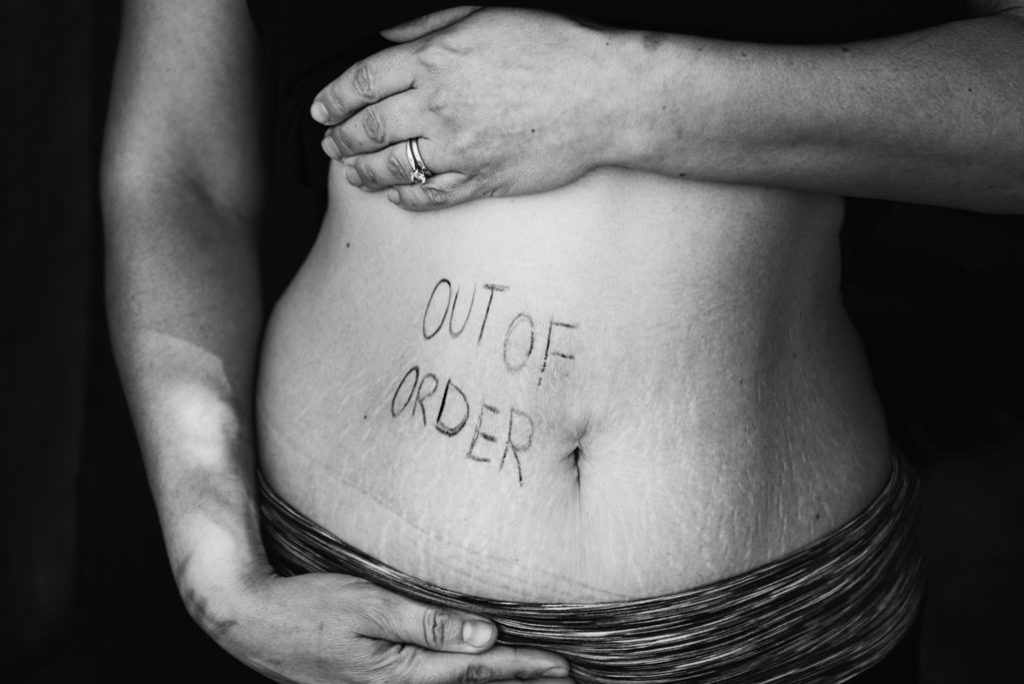Coeliac disease; To review or not to review that is the question?

To review or not to review? That is the question that coeliac patients face every year following diagnosis as they decide whether to attend their annual check-up. Many will want to attend to ensure that all is well, but some patients may be symptom free after sticking to their gluten free diet and think to themselves “Well, what’s the point? I feel fine so therefore I am fine”.
However, coeliac disease can have hidden consequences that can cause future problems that make it extremely important to attend the annual review including vitamin and mineral deficiencies leading to anaemia (low blood count) and osteoporosis (bone thinning). And as one of the so-called autoimmune diseases (where the immune system attacks the body), patients with coeliac disease are more likely to develop related conditions such as thyroid disease, diabetes and skin problems. There is also the rare but worrying risk of developing a form of blood tumour in the small intestine. Coeliac patients should always report new gut symptoms that do not resolve in a few weeks or are serious to their GP, so they can be referred back to their specialist at short notice if needed as well before the year is up.
Therefore, it is important that at least an annual review should be offered to all coeliac patients and be undertaken by a healthcare professional with specialist knowledge. The review is kind of a MOT for the patient, not to ensure that their seatbelts are working properly but to ensure that their guts are being good to them and they are being good to their gut! By attending the review patients can be reassured that what they are doing by way of management is correct and the healthcare professional can check that this is the case. Whether you are a newly diagnosed coeliac, have or been living with the disease for years or simply reading this for more information about the disease, this blog will provide some helpful tips on how to prepare for the annual review and what to expect in way of support.
How to prepare for the review…
Patients will get the most out of their review if they come prepared. This is their chance to meet with the specialist and talk about worries and discuss any confusion about a certain product. We have three simple tips which we think will maximise a patient’s experience of a review:
- Keeping a food diary will help the specialist get an overview of what the patient has been eating. Giving a better chance for any advice to be tailored and more specific to the individual. We have an example of a food diary on our website here.
- It is a good idea for the patient to keep a record of their weight. So, weighing themselves regularly and making a note of it, possibly in the food diary. As any sudden weight gains or losses could be signs of other complications related to the disease.
- Come armed with a list of questions. Remember this review usually only happens once a year so this is the patient’s chance to get all their worries and concerns resolved by an expert. So, the more prepared the more they will get out of the consultation.
What to expect at your review?
Patients attending a review will be asked about their symptoms, particularly tiredness, stomach and bowel symptoms and any other changes they have noticed. They may not need a physical examination, but their weight should be measured and compared to previous assessments. Blood tests will be carried out to ensure that their body is absorbing all the nutrients required to maintain good health. The disease reduces the absorption of nutrients therefore patients require higher amounts of certain nutrients. For example, patients with poorly controlled coeliac disease are at high risk of developing osteoporosis so will need a higher amount of calcium in their diet to maintain healthy and strong bones. The recommendation for adult coeliac patient is 1000mg per day compared to 700mg per day for the rest of the population.
Foods containing high amounts of calcium:
- Cow’s milk and yoghurt
- Calcium enriched alternative milks (soya, almond and oat, * please check they have added calcium as not all do)
- Tinned sardines with the bones – eat the bones as this is where most of the calcium is
- Cheese
- Nuts and seeds
- Tofu and tempeh
- Leafy green leafy vegetables such as kale.
Patients should receive advice on gluten free products and where to shop for them. Most of the large supermarkets now have a comprehensive gluten-free range in their ‘free from’ section but they don’t stock all the alternatives. The healthcare specialists should have local knowledge to find those illusive replacement products, including local bakeries that produce quality gluten free breads and bakery items.
Signing up to join Coeliac UK (https://www.coeliac.org.uk/home/) means that you will receive their magazine Crossed Grain, three times a year. The magazine contains lots of information on new products and some new and exciting gluten free recipes to try out as well. There are other benefits that come with being a member of Coeliac UK these include;
- Access to the food and drink guide, a list of products that are safe to eat and drink for coeliacs
- Access to Coeliac UK smartphone apps – allows you to swiftly check if products are gluten free when you’re out and about
- Receive fact sheets and booklets about the condition
- Access to online facilities such as Venue guide – which allows you to check which restaurants/cafes are accredited with GF status and obtain feedback from local Coeliac groups regarding gluten free options on the menus
Some patients still have symptoms or tests that show their coeliac disease is not under control despite sticking to a gluten free diet. This is called refractory coeliac disease and can be due to intended or unintentional exposure to gluten, for example, if a patient’s spouse or family members are using the same bread board or bread knife as them. This is exactly the type of issue that should be picked up at the annual review. The specialist will help suggest methods to avoid cross-contamination by keeping food preparation equipment separate. One technique is to use separate bread boards, use reusable toaster bags or have separate toasters and keep small items such as bread knives and board separately in a sealed box.
Also, as nutritional science is rapidly evolving and new discoveries are being made all the time, the review is an opportunity for the patient to get an update on the latest treatments to emerge from evidence-based research.
Hopefully from this blog you can see that the option for the topic ‘to review or not to review’ is a very clear YES for peace of mind that everything is going well with your condition.
For more information about how to make an appointment with either Andrew or Sian to arrange your annual review.
This blog was written by a student dietitian Frankie Ebdon, with support from Sian Shepherd (Specialist Gastroenterology Dietitian) and Dr Andrew Millar (Consultant Gastroenterologist).
More information on Coeliac Disease can be found at:
Coeliac UK – https://www.coeliac.org.uk
NHS Choices – https://www.nhs.uk/conditions/coeliac-disease/
Tags: Coeliac Awareness, Coeliac diagnosis, Coeliac dietitian, Coeliac Disease, Coeliac UK, Gastroenterologist, Gastroenterology Dietitian, Gluten free diet


